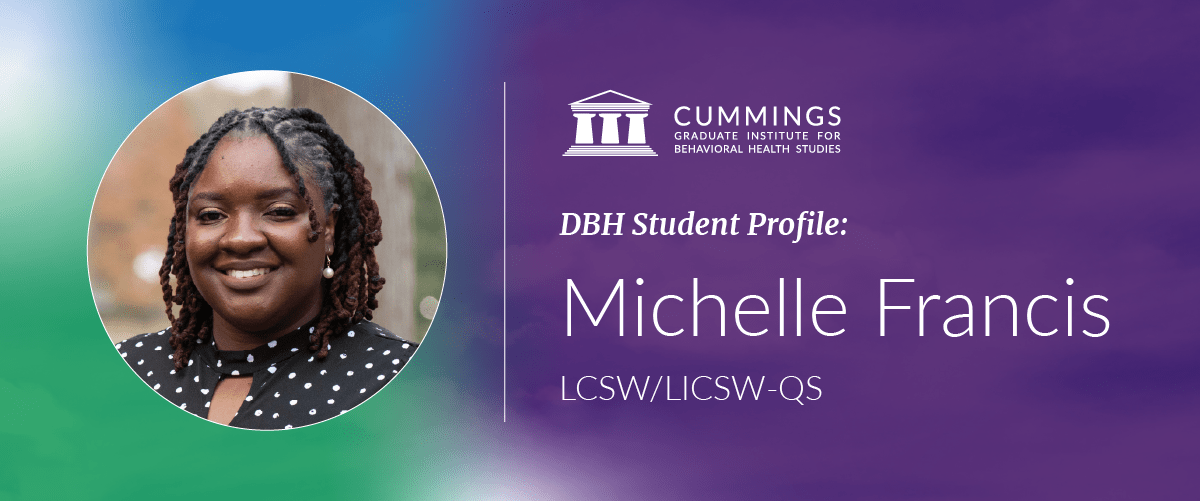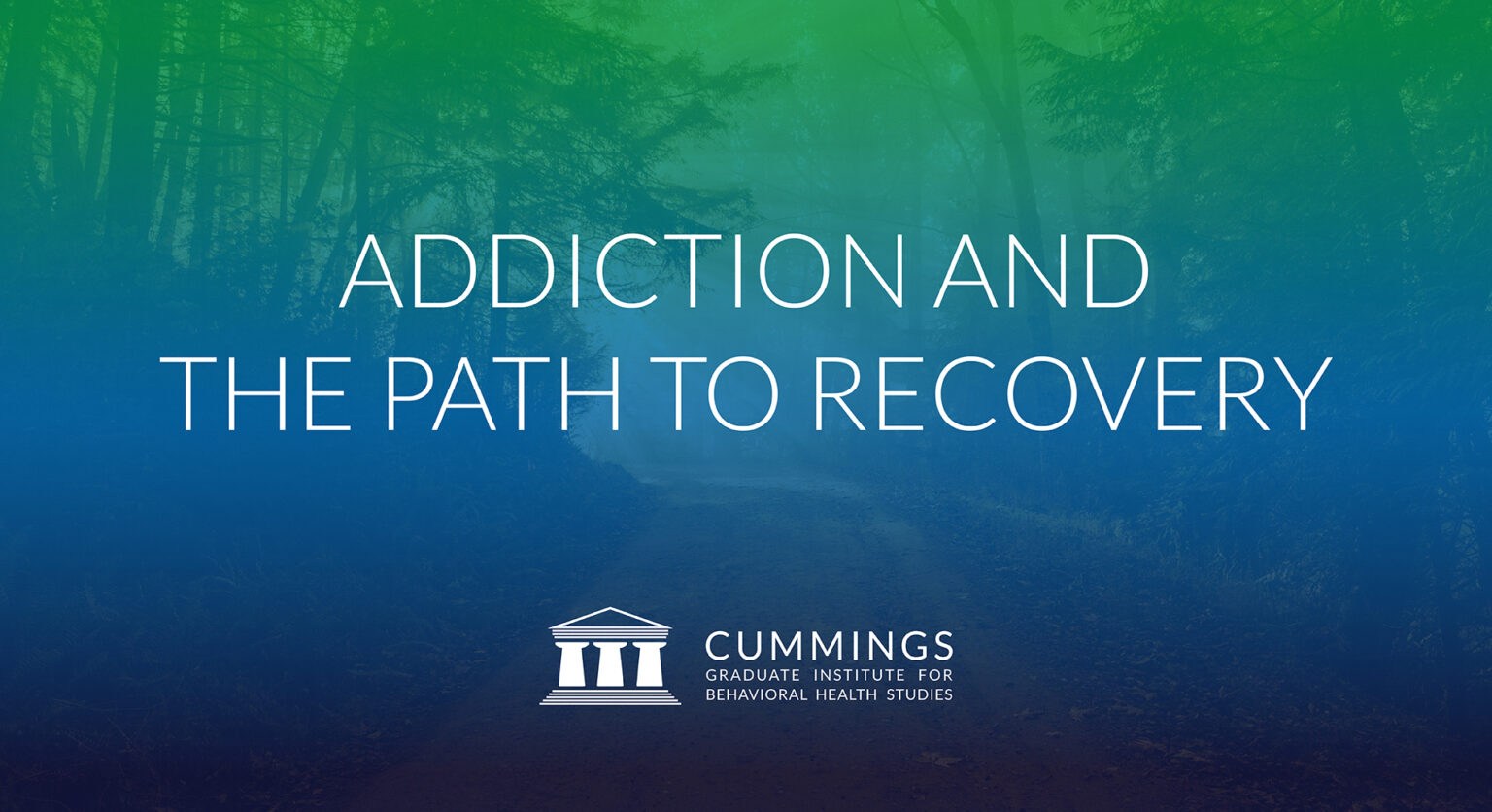 From Passion to Practice: Michelle Francis’s Mission to Reduce Stigma and Expand Access to Care
From Passion to Practice: Michelle Francis’s Mission to Reduce Stigma and Expand Access to Care
September 10, 2024
Born in Jamaica and raised in South Florida, Michelle Francis always knew her path would lead to a career focused on helping others. After earning a bachelor’s degree in Criminal Justice and a master’s in Social Work from Florida Atlantic University, her passion for serving others blossomed. Over the course of her career, she has worked across various sectors of behavioral health, including working with incarcerated offenders, child welfare, case management, and assisting those struggling with substance use disorders—an area she is deeply passionate about. As a Qualified Supervisor for social work interns in Florida, she helps guide the next generation of clinicians toward licensure. Now as a DBH candidate and Licensed Clinical Social Worker, Michelle has launched her own venture, Pinnacle Clinical Solutions (PCS), a counseling and consulting practice dedicated to providing exceptional therapeutic services and training to individuals and agencies alike. Michelle is passionate about decreasing the stigma surrounding substance use disorders and other addictive behaviors and advocating for underserved communities to access the care they need. In this interview, she shares insights into her DBH program experience, her perspective on holistic care, and her vision for the future of behavioral healthcare.
What is a specific achievement in your behavioral health career that you are particularly proud of?
I am very proud of starting my practice, Pinnacle Clinical Solutions (PCS). I am dedicated to putting in the work to grow PCS into a staple in the behavioral field. Stay tuned!
How have you fellow DBH classmates enriched your learning?
My classmates are amazing. I do not hesitate to reach out to them for guidance and collaborative efforts. The CGI community is very welcoming and we treat each other like family. I can foresee my classmates and I bringing forth innovative change to the behavioral health field.
How has the DBH program contributed to the development of specific skills that are crucial for success in the behavioral health sector?
The DBH program emphasizes the importance of collaborative care. When I am providing services to clients, I analyze how I can incorporate other disciplines into the conversation to ensure that clients are receiving optimal care, which in turn results in the best outcomes for those we serve.
What is your perspective on the importance of a holistic approach in addressing behavioral health issues, and how has the DBH program has influenced your approach?
As a provider, the holistic approach is very important to me because we need to look at the whole person. Clients do not adapt to a one-size-fits-all approach. CGI emphasizes that every client is unique, therefore, we must look at all factors that may be contributing to their distress. Treatment plans must be tailored to address all of their needs instead of only focusing on the one aspect of their life. When we treat the whole person, that reduces the risks of prolonged medical and behavioral complications.
Reflecting on your DBH journey, what support has been most impactful throughout your degree program?
CGI feels like a community of long-lost cousins that finally met as adults and we realized that we share the same goals. The support from the faculty and classmates have been nothing short of amazing. I can reach out to my advisor at any given time to discuss course work, career endeavors, or to just vent about life. There is a feeling of closeness and belongingness at CGI that is just unmatched. I am very happy to be a member of the family and will continue to spread the word of how great this DBH program is.
As Michelle nears the completion of her DBH degree, her commitment to advancing behavioral healthcare access remains unwavering. From founding Pinnacle Clinical Solutions to her passion for reducing the stigma surrounding substance use disorders, her dedication to serving her community is profound. The support from her DBH program and classmates has enriched her learning, providing a collaborative learning environment and support system that she values deeply. Upon graduation, Michelle aims to partner with a Primary Care Provider in an integrated care setting, utilizing the Biodyne Model to provide holistic, patient-centered care. Michelle is poised to continue advocating for underserved communities and advancing integrated care in the behavioral health field for years to come.
Learn about Michelle’s vision for the future of behavioral healthcare
Connect with Michelle Francis
Instagram: @pinnacleclinicalsolutions
Facebook: Pinnacle Clinical Solutions
LinkedIn: Michelle Francis
Check Out Michelle Francis on the Disruptors at Work Podcast
 Disruptors at Work: an Integrated Care Podcast, Season 3, Episode 9: Addiction and the Path to Recovery with Michelle Francis, LCSW/LICSW-QS
Disruptors at Work: an Integrated Care Podcast, Season 3, Episode 9: Addiction and the Path to Recovery with Michelle Francis, LCSW/LICSW-QS
Explore Michelle Francis’s Research
PHM: Chronic Kidney Disease and Depression
Imagine the mental agony of having to wait on edge for months or more commonly, years, on the kidney transplant list for a match to receive a new kidney. This is the reality for more than 100,000 Americans. According to the National Kidney Foundation (2023), the average wait time to receive a new kidney is about 3-5 years, and the wait may be longer based on one’s location in the country. Given these statistics, it is evident as to why an individual with Chronic kidney disease (CKD) may also suffer from depression. This literature review will explore the relationship between CKD, depression, and treatment modalities that serve as the best outcomes.






























